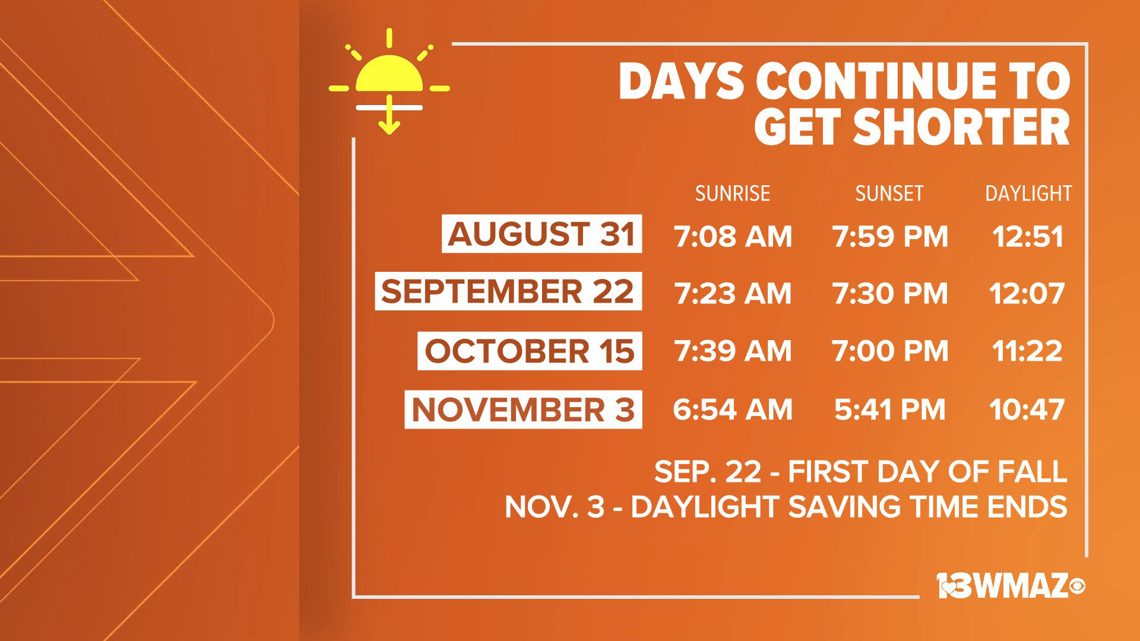Daylight Saving Time: What it is, when it ends and how it affects the weather

Daylight Saving Time: What it is, when it ends and how it affects the weather
Georgia is one of several states trying to stay on daylight saving permanently, but final say belongs to Congress.
MACON, Ga. — Most everyone’s heard of Daylight Saving Time. We relish ‘falling back’ for that precious extra hour of sleep; we dread ‘springing ahead,’ sometimes waking up disoriented and groggy.
Thankfully, the next time change means some extra rest — and Central Georgia’s already seeing signs of that precious hour to come. In fact, we won’t have a sunset after 8 p.m. again until next spring! That time change is coming fast.
The 13WMAZ weather team says by the end of September, sunset will happen before 7:30 p.m. By mid-October, it’s 7 p.m. When we finally ‘fall back’ Nov. 3, we’re looking at sunset before 5:45 p.m.!

So, there’s your answer: Daylight Saving Time ends Sunday, Nov. 3 at 2 a.m. — you’ll set your clock back one hour.
What is Daylight Saving Time?
The practice began in 1918 with the passage of the Standard Time Act. It was only temporary, and was designed to help save energy during World War I by extending daylight hours. Lawmakers repealed the new law after less than two years, according to the U.S. Department of Defense.
Then came World War II. Congress brought the practice back, but only until the end of the war. In 1966, Congress passed the Uniform Time Act, setting a national standard time.
Since then, the law has changed a few times, mainly shifting the beginning and end dates. Currently, Daylight Saving Time starts the second Sunday of March and ends the first Sunday of November.
What effects does it have on the weather?
Earlier sunsets shorten the days, limiting daytime heating from the sun. This will bring a gradual drop in temperatures.
During Daylight Saving Time, the sun’s angle becomes lower, making solar radiation less direct.
The addition of cooler air would also change our weather pattern. There would be fewer pop-up afternoon thunderstorms and more large-scale weather systems, such as cold fronts.
Didn’t Georgia try to move away from time changes?
Yes, but Georgia’s law isn’t enough to change the practice in the Peach State. Gov. Brian Kemp signed a law to keep Georgia on Daylight Saving Time in 2021, but Congress has the final say of whether it goes into effect.
The Uniform Time Act mandates all states use Daylight Saving Time, but allows states to opt out. It just doesn’t allow states to stay permanently in daylight saving, which is the premise of Georgia’s law.
In 2022, the U.S. Senate passed a bill dubbed the ‘Sunshine Protection Act,’ which would keep the nation on Daylight Saving Time. It never got a vote in the House of Representatives.
So, at least for now, Georgia and several other states will be moving the clocks backward again in just two months.
